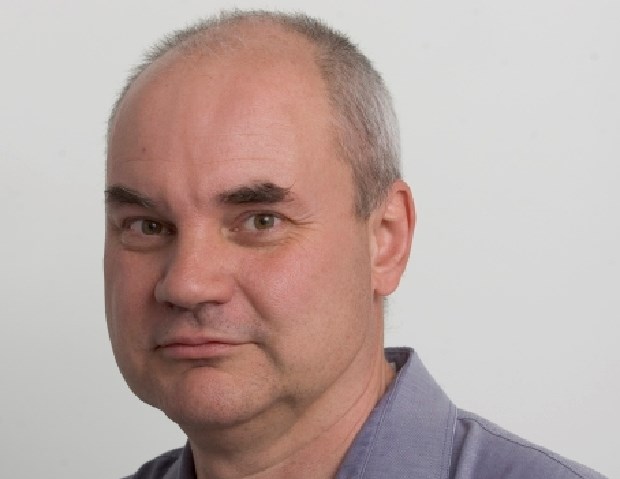 After 12 years of war, they’re lowering the Maple Leaf flag in Kabul one last time today — and Canada’s oldest soldier in Afghanistan is ready to come home to Victoria.
After 12 years of war, they’re lowering the Maple Leaf flag in Kabul one last time today — and Canada’s oldest soldier in Afghanistan is ready to come home to Victoria.
“I miss the sea breeze, because I’m 6,000 feet up, surrounded by desert,” says Lt.-Col. Paul Paone. “I miss being able to go out without 40 pounds of protective equipment on. I want to be back in Margaret’s arms.”
Paone is 59, not a lot older than 54-year-old Eric Boucher, another lieutenant colonel from Victoria, though it’s enough of a gap for Boucher to refer to Paone as the task force’s senior citizen.
Of the 40,000 Canadians who served in Afghanistan since 2001, fewer than 100 remain, including these two fiftysomethings. By this time next week, they should all be back in their own beds, Canada’s largest deployment since the Second World War finally over.
Not that most Canadians have been as emotionally invested in Afghanistan as they were in the latter conflict. This time, Canada hasn’t been a country at war so much as a country that sent troops to a war. Those 40,000 uniformed Canadians compare to the million who served in the Second World War. We lost just 158 soldiers in Afghanistan, a fraction of the number killed in a single morning at Dieppe.
Don’t say “just” to Maureen Eykelenboom, though. She’s the mother of Comox’s Andrew (Boomer) Eykelenboom, a 23-year-old medic killed by a suicide bomber in 2006.
Don’t say “just” to the families of 25-year-old Langford reservist Myles Mansell, who died when anti-tank mines were detonated under his G-Wagon that year, or Victoria’s Andrew Nuttall, a 30-year-old killed by an IED two days before Christmas 2009 while on a foot patrol with the Princess Patricia’s Canadian Light Infantry.
Don’t say “just” to Nanaimo’s Trevor Greene, whose iron will and loving wife brought him back from the axe to the head that almost killed him as he knelt with Afghan village elders.
For those who were there, there’s no “just” about Afghanistan. Vancouver Island’s contribution included, but wasn’t limited to, 67 Canadian Scottish reservists who rotated through, along with naval bomb-disposal experts from CFB Esquimalt and military police officers doing dangerous close-protection work. There’s passion when they talk about Canada’s contribution.
Soon after arriving in Kandahar for his first Afghanistan tour in 2006, Boucher was out on patrol when a suicide bomber detonated a vest packed with ball bearings, killing a dozen people and wounding dozens more.
“I had a small boy, not much younger than my own son at the time, die in my arms as we were trying to get him to hospital,” he recalled, on the phone from Afghanistan. It affected him deeply.
In Kabul the other day, a boy of the same age — nine or 10 — smiled and gave him the thumbs up. “I thought, ‘The future will be better for that kid.’ ”
Not that Afghanistan is close to peace or prosperity. Even in the relatively tame capital, far from the volatile south, day-to-day life means traffic chaos, a lack of sanitation, safety that depends on a machine-gun-toting cop on every corner. “Everybody’s poor.”
But it’s better than it was, Boucher says. “We’ve seen the security situation steadily improve.”
Boucher enlisted with the Canadian Scottish in 1977, commanded the infantry reserve unit for five years prior to coming to Afghanistan last summer. He spent nine months training the Afghan National Police.
Paone spent the same time as an adviser to the Afghan major general in charge of logistics for his country’s army. He’s book-ending a 42-year soldiering career that really got started with a stint in Egypt after the Arab-Israeli War of 1973. “I’m finishing on a high note.”
They’re part of a 46-nation international force: Americans, Brits, Turks, Romanians, Jordanians, Macedonians. … Paone was happy to work alongside dozens of Italians. “I’m in a crowd of people who can say my name right the first time.” They work six days a week, at least 12 hours a day.
The question now is what will happen when the rest of the 53,000 international troops, including 34,000 Americans, are gone, leaving the fighting to the 330,000 Afghan soldiers and police officers being trained by the Canadians.
“The people are so, so nice,” Paone says. “The basic Afghan just wants to feed his family and life in a safe environment.
“They don’t want NATO to leave.”
They also know where Paone comes from. “They know who Canadians are. I’ve never been called an American.”
Boucher also thinks Canadians have acquitted themselves well. “I think we underestimate how distinctive and unique we are, how our work ethic and commitment are something people take note of.”
No more, though. Twelve years is a long time to be at war. Forty-odd years is a long time to be a soldier.



